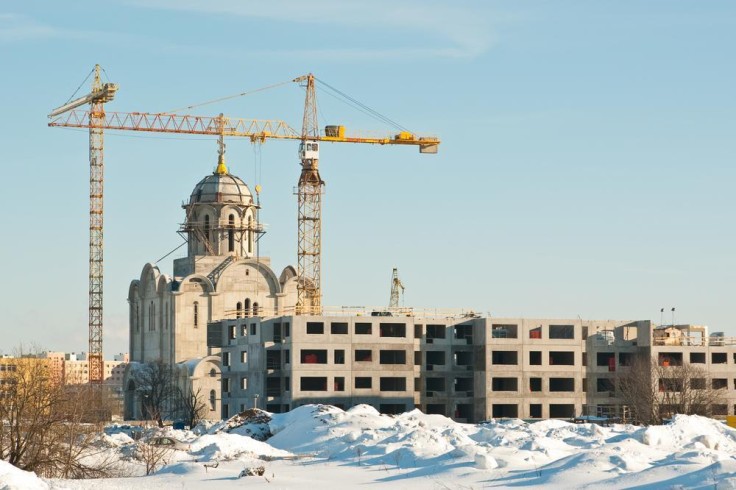ARC Church Planters Brandon and Delaney Woodward Share Lessons Learned
Created by
Brandon and Delaney Woodward planted Union City Church in Washington, D.C., in September 2021 with the help of ARC (Association of Related Churches). Like many other ARC church planters, the Woodwards faced many challenges, but theirs was especially challenging, considering they were doing so in a city far away from what they knew.
Both Brandon—who was a pastor's kid—and Delaney grew up in Albuquerque, New Mexico, and lived there for 31 years. When they moved to the nation's capital in early 2021, they left behind everything they had ever known.
Brandon says it was an intense moment, for sure, but they really had a call in their hearts to make the trip.
"We knew, even in the midst of all that, that God was still pulling us to the city," he said.
Here is the Woodwards' journey of joining the ARC churches network and starting their own church.
What's in a Name?
The Woodwards didn't just randomly pick the name of their ARC church out of a hat. Delaney explains that they strategically chose the name Union because they believe that God called them to build a church that was united in a world that is divided.
And, if there's one city in the United States that could most need unity rather than more division, it's Washington, D.C.
"Washington, D.C., is an amazing city full of incredible people. There's so much opportunity, so many ambitious, influential, world-changing individuals located in the 68 square miles," Delaney said. "But, it's also a city that's considered post-Christian. It's more secularized than the rest of America."
As such, the Woodwards saw a "big need and opportunity" in the city to help deliver the message of Jesus, which can set the tone for unity not just in D.C. but in the world.
How They Overcame COVID Restrictions
ARC (Association of Related Churches) shares a model with church planters about coordinating interest gatherings, launch parties, and models for gatherings in general. In most cases, ARC church planters can follow those models to put themselves in the best possible position to succeed from the beginning.
The Woodwards, though, faced another unique challenge. They couldn't follow the models set forth for ARC churches because of the COVID-19 pandemic.
"We were actually not allowed to do that in the midst of the COVID climate that we were in," Delaney explained. "There was a very strict gathering limit. And, more than that, people were just unwilling to really gather publicly."
That didn't stop the Woodwards from finding ways to connect with community members, though. They met one-on-one with as many people as they could, having coffee with more than 100 people, Delaney said.
It's the same dedication to overcoming challenges that led Union City Church to the only two spaces in the entire city that would return their phone calls, and they were right across the street from each other.
So, now, they use one space as a gathering place, and the other is transformed into Union City kids.
Like any ARC church planter, Brandon says they had a lot of reservations and questions about whether what they wanted to do would work—all of which caused a lot of stress. But, he expressed one thing that all prospective church planters can learn from:
"It's not perfect. But, by and large, we love our community, and I love what God has brought together. I love the people, and we're just having a blast doing it."
About ARC (Association of Related Churches)
ARC (Association of Related Churches) is a cooperative of independent churches from different denominations, networks, and backgrounds who strategically resource church planters and pastors to help them reach people with the message of Jesus. ARC exists to see a thriving church in every community, reaching people with the message of Jesus. Since its beginning in 2001, ARC has grown into a global organization and has helped plant more than 1,000 churches.
© 2026 University Herald, All rights reserved. Do not reproduce without permission.








